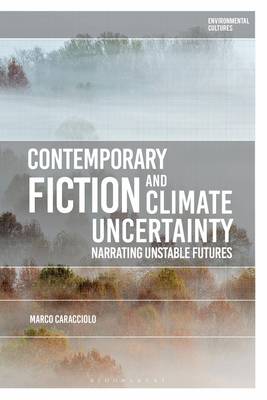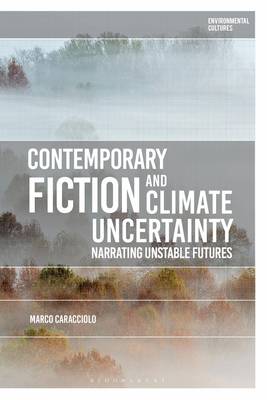
- Afhalen na 1 uur in een winkel met voorraad
- Gratis thuislevering in België vanaf € 30
- Ruim aanbod met 7 miljoen producten
- Afhalen na 1 uur in een winkel met voorraad
- Gratis thuislevering in België vanaf € 30
- Ruim aanbod met 7 miljoen producten
Zoeken
€ 69,45
+ 138 punten
Uitvoering
Omschrijving
This open access book argues that storytelling is an important resource in coming to terms with the loss of the feeling of living a grounded existence where the future remains relatively stable and predictable. Faced with the specter of climate catastrophe, we lose confidence in the future-a well-documented response in the environmental movement, for example. Yet stories, and in particular sophisticated fictional stories, can help us negotiate that uncertainty: they offer affective and imaginative tools that channel the instability of our climate future and invite audiences to accept its fundamental uncertainty.
In all, this book represents a serious contribution to the environmental humanities that brings a flexible formal approach to bear on central questions of our time. Its commentary on contemporary works of prose and digital narrative is an aid for navigating climate uncertainty and appreciating the more-than-human scale-but also the tragic ramifications-of the ecological crisis. The ebook editions of this book are available open access under a CC BY-NC-ND 4.0 licence on bloomsburycollections.com. Open access was funded by The European Research Council and the University of Ghent.Specificaties
Betrokkenen
- Auteur(s):
- Uitgeverij:
Inhoud
- Aantal bladzijden:
- 232
- Taal:
- Engels
- Reeks:
Eigenschappen
- Productcode (EAN):
- 9781350233935
- Verschijningsdatum:
- 19/10/2023
- Uitvoering:
- Paperback
- Formaat:
- Trade paperback (VS)
- Afmetingen:
- 156 mm x 234 mm
- Gewicht:
- 326 g

Alleen bij Standaard Boekhandel
+ 138 punten op je klantenkaart van Standaard Boekhandel
Beoordelingen
We publiceren alleen reviews die voldoen aan de voorwaarden voor reviews. Bekijk onze voorwaarden voor reviews.








